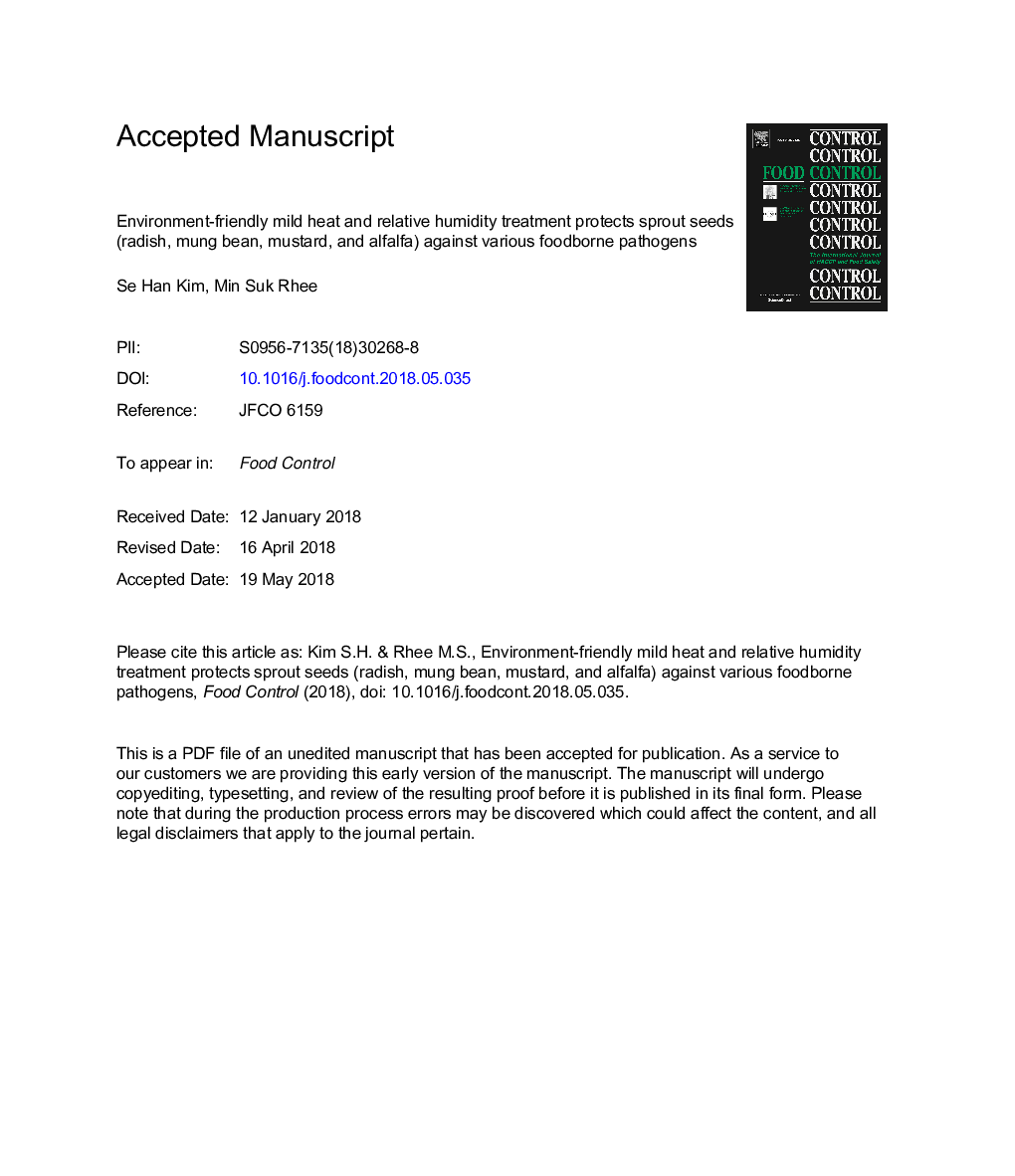| Article ID | Journal | Published Year | Pages | File Type |
|---|---|---|---|---|
| 8887685 | Food Control | 2018 | 23 Pages |
Abstract
The utility of a novel technology based on heat and relative humidity (RH) was examined; the method was used to treat experimentally contaminated radish, mung bean, mustard, and alfalfa seeds. Seeds were inoculated with high (ca. 7 log CFU/g) or low (ca. 3 log CFU/g) levels of Escherichia coli O157:H7, Salmonella Typhimurium, and Listeria monocytogenes, and treated at 65â¯Â°C/40% RH for 8, 15, or 22â¯h. The 15â¯h treatment reduced the numbers of E. coli O157:H7 and S. Typhimurium on all seeds to below the detection limit (10â¯CFU/g), whereas longer treatment (up to 22â¯h) was needed for L. monocytogenes. At 8â¯h, L. monocytogenes on mung bean was significantly less susceptible to combined treatment that L. monocytogenes on other seeds (Pâ¯<â¯0.05). Overall, the 22â¯h treatment eliminated E. coli O157:H7 from radish and mustard seeds, and L. monocytogenes from mustard and alfalfa seeds; the treatment had no significant effect on the viability of radish, mung bean, or alfalfa seeds (Pâ¯>â¯0.05). However, the mustard seed viability fell by about 9.8%. These findings indicate that the environmentally friendly technology is a wide spectrum method of decontaminating sprout seeds, with little concomitant reduction in seed quality.
Related Topics
Life Sciences
Agricultural and Biological Sciences
Food Science
Authors
Se Han Kim, Min Suk Rhee,
